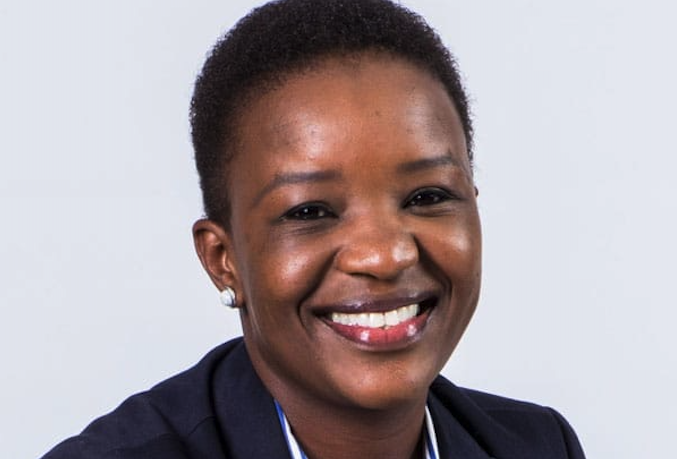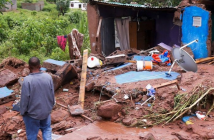Open-Ed
Organised business is a determined partner to government in assisting to deliver an environment conducive to economic growth. That is why I listened very carefully to the president’s State of the Nation speech last week. How is it that business can assist?
As the president well knows, it is extremely difficult for many businesses to make investments in the current environment. Load shedding is the most obvious challenge. On that front, business has been a strong supporter of the National Electricity Crisis Committee (NECOM) which has worked hard to identify the many interventions that can help to relieve the crisis. I was eager to hear what new plans the president may have to drive the recommendations coming from the committee forward.
Two things stood out in his speech: the creation of a new post for an electricity minister and the declaration of a state of disaster. But neither provided a clear opportunity for business to partner. Indeed, I am concerned that both have the potential to disrupt the ways business is working with government on solving these problems now.
Let me start with the concept of an electricity minister. The first problem is that it is unclear what legislative function such a minister can perform. The responsibilities regarding Eskom and electricity policy are clearly assigned – the minister of public enterprises must exercise shareholder responsibilities and the minister of mineral resources and energy must set electricity policy. These legislated responsibilities cannot be reassigned on a whim.
We need to drive and complete the restructuring of Eskom, unbundling an independent system operator as the main step. The sooner that happens, the sooner we will be on the path to dealing with the structural problems of our electricity sector. The question I was left pondering was why the president is appointing a new minister rather than putting people into the ministries currently endowed with the responsibilities to drive that restructuring? I appreciate the president’s view that the minister will oversee the work of NECOM, but in fact what is needed are ministers in public enterprises and minerals & energy who will expeditiously drive through the work of the committee, not another minister.
Last month BLSA together with Business Unity South Africa wrote to the president to share our thoughts on the upcoming cabinet reshuffle. We wrote that the “expectations of the Presidency can be overplayed, which is why we think it is important that accountability for delivery is shared by Cabinet as a whole.” But the appointment of an electricity minister within the presidency clearly goes against this view. Yet more accountability is being shifted away from cabinet and into the presidency.
Perhaps the president has a clear plan and there is a positive role for such a minister. I would welcome it. If there are clear deliverables and clear timeframes put to them, it could turn out to be positive. But the risk is that we create yet another centre of power in the effort to drive reform and change for the sector, including Eskom. As it is Eskom’s leadership is having to account to many stakeholders and a third minister does not seem to help the predicament the SOE faces.
The state of disaster is a similar move in which it is far from clear that it will be positive for the business environment. As I wrote last week, the state of disaster at the start of Covid left citizens reeling from a lack of accountability – widespread procurement fraud and gross violations of the rights of citizens. It also undermines the rule of law, potentially damaging business confidence. So how will this one be different? What is it that a state of disaster allows that cannot be done anyway? The president’s speech did not make that clear, and days later there still had not been any regulations published in terms of the state of disaster, so we are none the wiser. But again I am open to being convinced – if it really helps solve this crisis, I would welcome it. It is critical that guard rails be put in place to prevent the abuses we have seen in previous states of disaster. There are considerable risks that must be managed. But if, again, a plan is provided with clear timetables and deliverables, particularly for when the state of disaster will end, perhaps it will be of value.
Organised business will be actively engaging with our counterparts in the presidency to give them the opportunity to convince us. And if they succeed, we will be enthusiastic partners.
The departure of the head of the president’s climate finance task team, Daniel Mminele, as well as the resignation of Eskom CEO André de Ruyter have heightened fears that SA’s JET is “up in the air”, I write in News24 Business. SA’s energy transition is inevitable and is progressing in certain areas. Eskom’s decommissioning of the Komati power station is an example. But political obstacles and the lack of transparency around the process are concerning with international donors urging faster implementation.
In looking into areas where BLSA can improve conditions for whistle-blowers, we’ve heard some truly heartbreaking accounts of how the lives of these brave people are destroyed, I write in Business Day. Whistle-blowers have been instrumental in fighting corruption yet there are no official support structures and they must grapple with income loss, legal threats, death threats and depression. The US has laws that provide financial incentives for whistle-blowers to report evidence of wrongdoing. There’s a strong argument for that in SA. We must use every weapon we have to eradicate corruption from our society and implement recommendations of the Zondo Commission for structures and processes to be established to combat corruption.
Author: Busisiwe Mavuso
Bisisiwe is the CEO of Business Leadership South Africa (BLSA)
BLSA is a business organisation that believes in South Africa’s future and shares the values set out in the Constitution. In 2017, BLSA signed a contract with South Africa, committing business to playing its part in creating a South Africa of increasing prosperity for all by harnessing the resources and capabilities of business in partnership with government and civil society to deliver economic growth, transformation and inclusion.
Disclaimer: The articles and videos expressed in this publication are those of the authors. They do not purport to reflect the opinions or views of Green Building Africa, our staff or our advertisers. The designations employed in this publication and the presentation of material therein do not imply the expression of any opinion whatsoever on the part Green Building Africa concerning the legal status of any country, area or territory or of its authorities.















